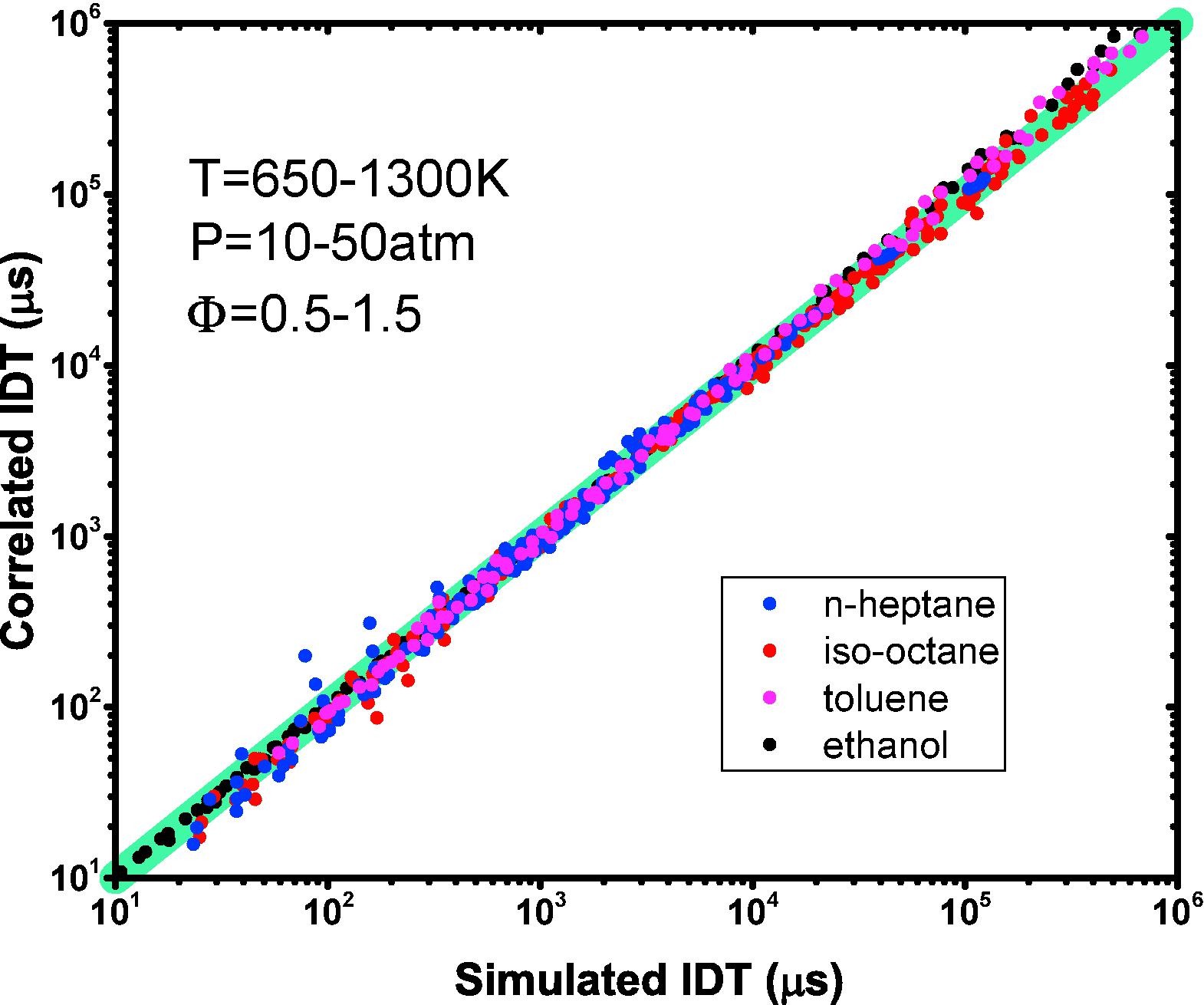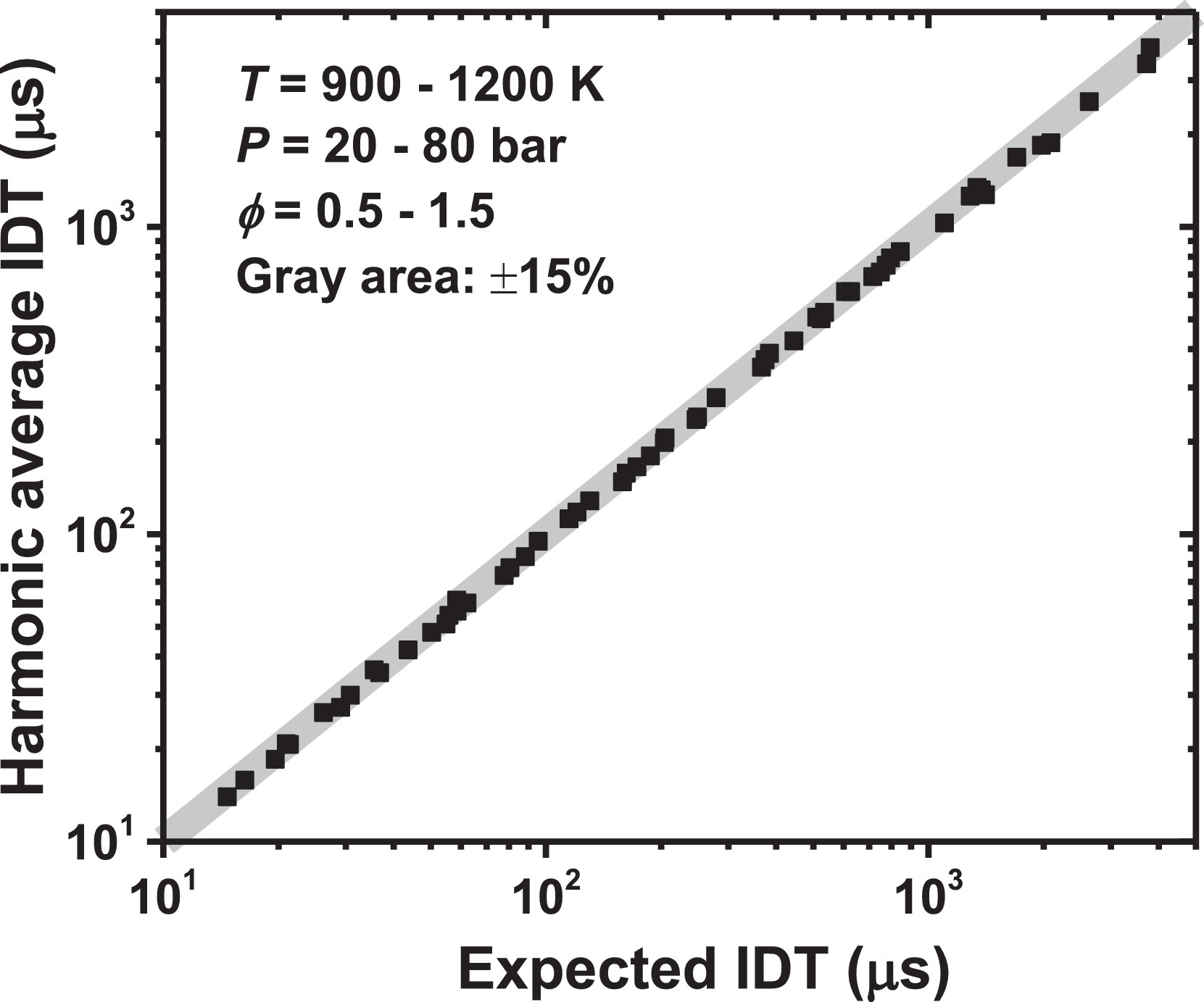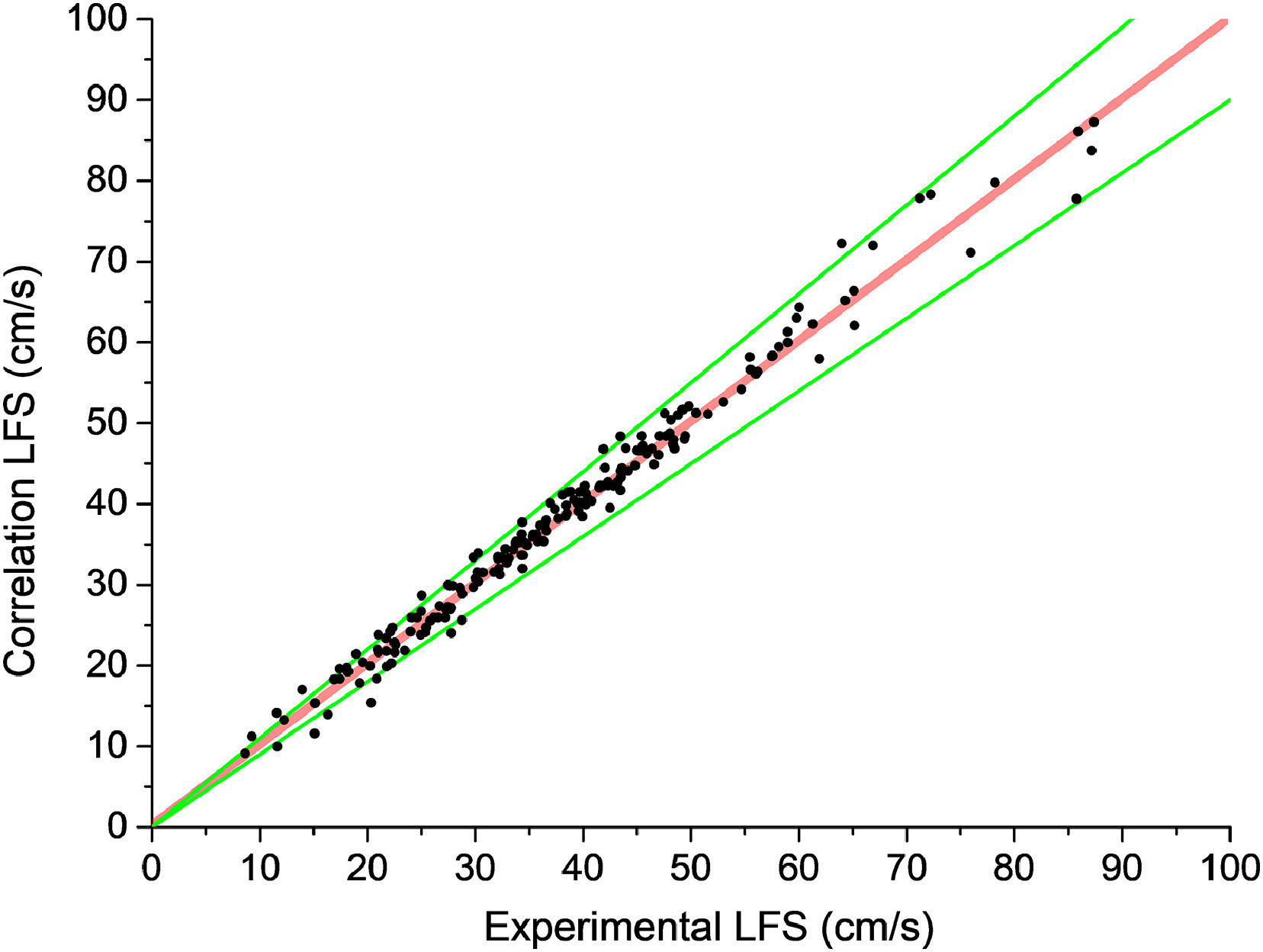

.png?sfvrsn=1b6bae1a_0) (FASTER)
(FASTER).png?sfvrsn=ac211bda_0)
Reliable predictions of combustion behavior allow for better engine optimization, reducing fuel consumption and emissions while improving performance.
The study focuses on two key aspects of combustion: ignition delay times and laminar flame speeds. For IDTs, the project proposes a correlation based on experimental data from fuel blends such as n-heptane, iso-octane, and ethanol, using shock tubes and rapid compression machines to capture fuel reactivity across various conditions. The LFS correlation is developed using Monte-Carlo simulations to model randomly generated gasoline mixtures, predicting flame speeds over a range of pressures, temperatures, and equivalence ratios. Both correlations are validated against experimental data, providing tools for optimizing engine performance and reducing emissions.

Performance of IDT correlation (Livengood Wu) for single-component fuels (green background line width represents ± 20% deviations)

Comparison between the expected IDTs of random multicomponent mixtures and the harmonic average IDTs of equimolar mixtures.

Comparison between predicted LFS, and experimental gasoline LFS data. The green lines are ± 10% deviations.
Impacts